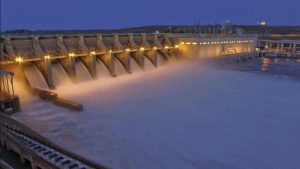Snake River Dam Removal: AFS Must Be the Voice for Fish
Monday, August 22, 1:20 pm: Part of the all-day symposium Building Effective Policy Approaches for Current Fisheries Issues. Other symposium highlights include an update from AFS Policy Director Drue Winters on the Recovering America’s Wildlife Act, a policy and science communication hands-on learning session, presentations on aquaculture and infrastructure policy, and more.

The Columbia River ecosystem was once the most prolific salmon habitat in the world. A network of complex interconnected habitats allowed anadromous fish to pass unimpeded to and from natal habitats. Now, the Columbia River ecosystem bears little resemblance to its natural state and the free-flowing rivers have been transformed into a series of reservoirs. Dams provide hydroelectric energy for western states, deliver irrigation water for millions of acres of agriculture, and allow commercial navigation to move grain and other goods efficiently, but have led to significant declines in salmon, steelhead, and lamprey. Since the 1980s, a number of fisheries recovery strategies have been attempted with little or no success. Despite spending billions on recovery, these species continue to decline, affecting both aquatic and terrestrial ecosystems, other imperiled species such as Puget Sound killer whales, and commercial, tribal, and recreational fishing. Science shows that breaching the four lower Snake River dams would provide more certainty of achieving long-term survival and recovery than would any other measure or combination of measures that do not include dam breaching.
U.S. Representatives Simpson (Idaho) and Blumenauer (Ore.) have proposed a concept that provides for removal of the four lower Snake River dams while addressing the needs of all stakeholders who depend on the Snake River. Washington’s Senator Patty Murray and Governor Jay Inslee are expected to release an actionable plan for removing the dams and replacing their services in summer 2022. The Biden Administration is also attempting to develop a comprehensive salmon restoration plan to settle longstanding litigation with Tribes, the state of Oregon, and conservation organizations.
Despite these important developments, AFS has been unable to come together on a position statement that calls for removal of the dams. Join us to hear from a panel of speakers who will highlight how dam removal can rehabilitate fisheries and rivers, explore the legislative landscape, and emphasize the need for AFS to be at the table for this policy debate.
Speakers include:
- Jessica Helsley, The Wild Salmon Center
- Jay Hesse, Nez Perce Tribe
- Representative of Congressman Mike Simpson’s Office
- Bob Hughes, AFS Past President and Chair of the Western Division Resource Policy and Environmental Concerns Committee
- Steve Moyer, Trout Unlimited
- Drue Winters, AFS Policy Director (Moderator)
